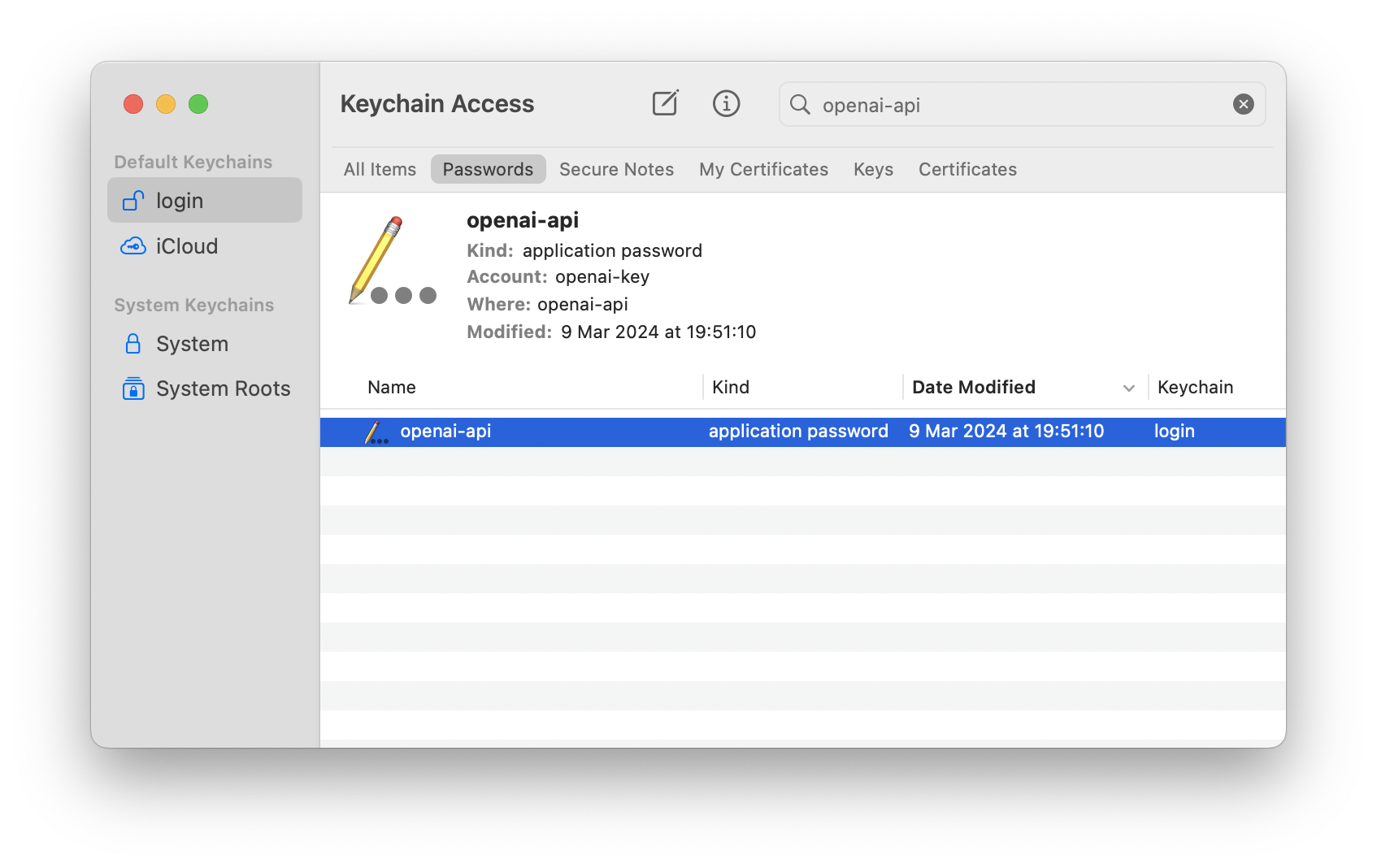@Rui Camo wrote a blog post about how to use the OpenAI API to build Apple Shortcuts.
The first one I built takes a link, reads the article, and uses #ChatGPT to summarise it.
You can download my “AI Summariser Shortcut” and use it for free.
Setting Up The MacOS AI Shortcut
- Sign up for an OpenAI API Key and purchase credits to use it.
- Add your API key to the MacOS keychain like in the screenshot.
Name: openai-api
Account: openai-key

Using The Shortcut
In any text editor, select a link and right-click.

Examples of the AI Summariser
https://www.scientificamerican.com/article/ais-climate-impact-goes-beyond-its-emissions/
Artificial intelligence (AI) systems have a significant environmental impact due to the high amount of computing power and electricity they require, leading to substantial carbon dioxide emissions. However, the impact of AI on climate change is not only due to its carbon footprint but also the applications it’s built for. For instance, AI is being used in industries like fossil-fuel extraction and automated advertising, both of which have potential environmental harm. On the other hand, AI can also be used to address climate change and other
https://earth.org/the-green-dilemma-can-ai-fulfil-its-potential-without-harming-the-environment/
Artificial Intelligence (AI) has a significant environmental impact due to its large carbon footprint, electronic waste, and potential harm to ecosystems. The energy-intensive process behind AI’s development, maintenance, and disposal contributes to increased greenhouse gas emissions. The Information and Communications Technology (ICT) industry is expected to account for 14% of global emissions by 2040, largely due to data centres and communication networks. The electronic waste produced by AI technology, which contains hazardous chemicals, is projected to surpass 120
https://www.nature.com/articles/s42256-020-0219-9
Artificial Intelligence (AI) plays a dual role in climate change, both contributing to and helping mitigate its effects. AI can help reduce the effects of the climate crisis through smart grid design, developing low-emission infrastructure, and modelling climate change predictions. However, AI is also a significant emitter of carbon. The carbon footprint of training a single large machine learning model is estimated to be equivalent to around 300,000 kg of carbon dioxide emissions. To reduce AI’s climate impact, it’s crucial to

